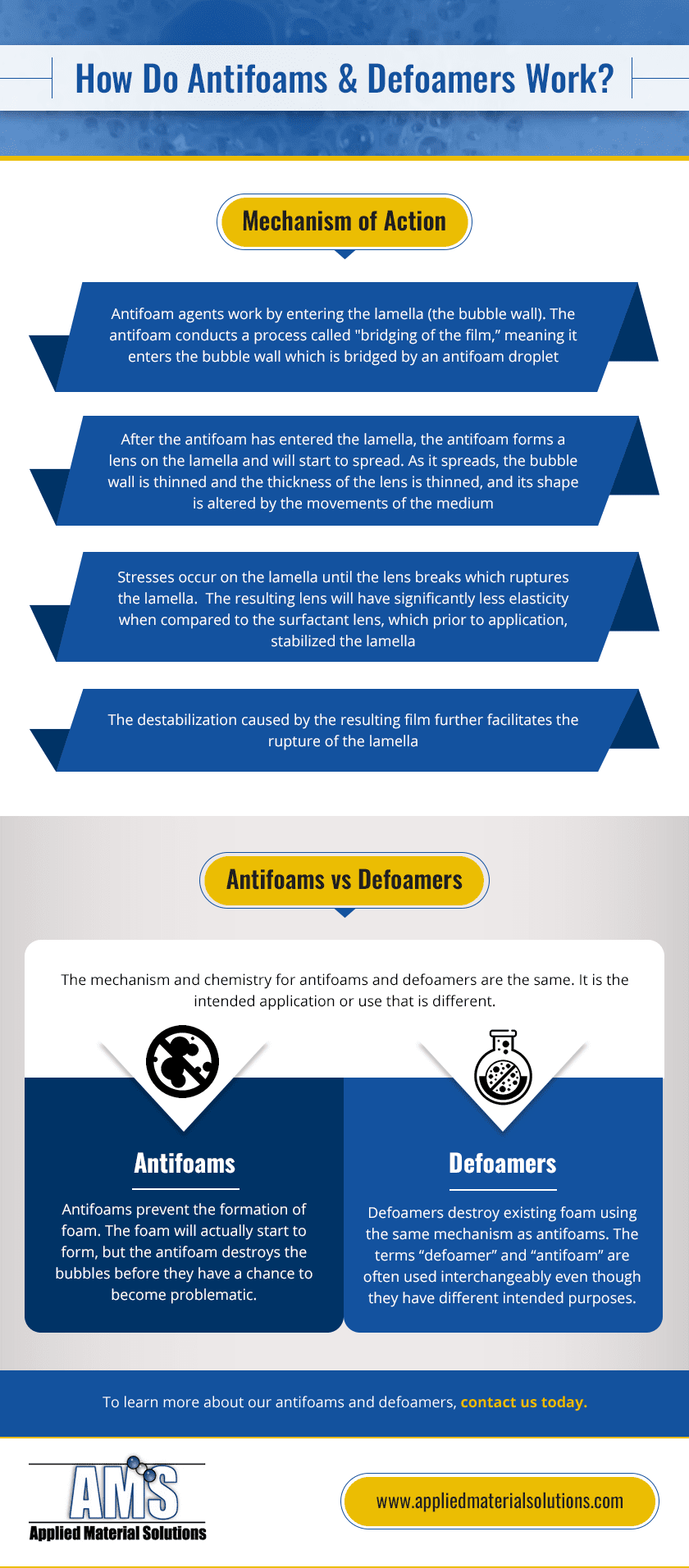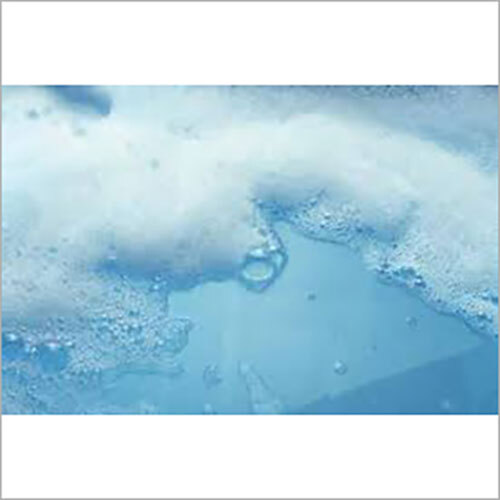Why Defoamers Are Essential in Water Treatment and Waste Management
Why Defoamers Are Essential in Water Treatment and Waste Management
Blog Article
The Role of Defoamers in Enhancing Product Quality and Efficiency
In various manufacturing processes, the existence of foam can considerably prevent product quality and operational effectiveness. Defoamers function as vital additives that reduce this concern, ensuring smoother production workflows while improving the functional and aesthetic qualities of the end products (defoamers). Their application covers a wide range of markets, from food and beverage to drugs, where uniformity and reliability are paramount. Nevertheless, the selection of the appropriate defoamer can be vital to accomplishing ideal outcomes, increasing essential inquiries regarding formula compatibility and performance metrics that warrant further expedition.
Recognizing Defoamers
Recognizing the role of defoamers is vital for preserving product quality throughout numerous markets. Defoamers are chemical ingredients developed to stop the development and decrease of foam in liquid systems, which can negatively affect procedures such as blending, loading, and surface tension. Foaming can bring about inefficiencies, product issues, and jeopardized visual appeal, making defoamers an important component in producing operations.
In industrial applications, defoamers aid to improve item uniformity and security. As an example, in the paint and finishes market, foam can hinder the application process and the final finish. Similarly, in food and drink production, extreme foam can prevent bottling and packaging effectiveness (defoamers). The efficient use defoamers not only makes sure smoother manufacturing processes however also adds to premium product performance.
Moreover, the option and solution of a defoamer have to straighten with details application needs, such as compatibility with various other ingredients, performance under varying temperature level and pH problems, and potential regulative restraints. Inevitably, understanding defoamers' features and their significance in numerous solutions is vital for optimizing manufacturing and ensuring the best quality final result.
Kinds Of Defoamers
Defoamers can be categorized right into several kinds based upon their make-up and system of activity. The main types include silicone-based, non-silicone natural, and inorganic defoamers.
Silicone-based defoamers are amongst one of the most reliable, largely because of their ability to spread promptly on the liquid surface and disrupt foam development. Their special chemical framework enables superior security, making them ideal for high-temperature applications and environments with varying pH degrees.
Non-silicone organic defoamers, usually made up of fatty acids or natural oils, are valued for their biodegradability and reduced poisoning. These are typically utilized in food and drink applications where security and environmental influence are paramount.
Not natural defoamers, that include materials like talc or calcium carbonate, act by boosting the density of the fluid, thus reducing foam security. They are frequently utilized in commercial procedures where compatibility with various other products is not an issue.
Each sort of defoamer has distinct advantages and constraints, enabling customized solutions relying on the specific foaming problems experienced in different applications. Comprehending these differences is vital for optimizing efficiency and achieving wanted item quality.
Applications Throughout Industries
Many markets utilize defoamers to enhance item top quality and operational efficiency. In the food and beverage industry, defoamers are important in processes such as brewing and dairy production to avoid foam formation, which can bring about inadequacies and item disparity. By controlling foam, makers can make sure far better return and an extra consistent click here for more product.
In the pharmaceutical market, defoamers play an important role in the solution of liquid drugs, where extreme foam can impede mixing and precise application. Their usage aids maintain the honesty of the formulations and facilitates smoother production processes.
The paint and coverings industry additionally depends on defoamers to enhance the performance of products during application. By reducing foam, these ingredients make sure a smoother finish and improve the visual top qualities of the final product.

Benefits of Utilizing Defoamers
While the application of defoamers varies throughout markets, their advantages consistently enhance product high quality and process efficiency. One significant benefit is the decrease of foam formation during producing procedures, which can or else result in production delays and incongruities in product high quality. By reducing foam, defoamers make it possible for a smoother flow of materials, promoting much more efficient operations and lowering the chance of tools malfunctions.
Additionally, making use of defoamers can enhance the look and structure of last items. In markets such as coatings, paints, and food processing, too much foam can jeopardize the aesthetic appearances and total top quality, while the ideal defoamer application guarantees an uniform surface and desirable characteristics. Moreover, defoamers can add to cost financial savings by lowering waste during production and optimizing making use of basic materials (defoamers).

Choosing the Right Defoamer
Choosing the appropriate defoamer is essential for maximizing production processes and guaranteeing product top quality. The choice of defoamer affects not only the performance of foam control yet additionally the general performance attributes of the end product. Factors to consider consist of the kind of application, the chemistry of the solution, and the ecological conditions under which the product will be utilized.
Various markets might call for certain defoamer types, such as silicone-based, natural, or polymeric defoamers. Comprehending the compatibility of the defoamer with the key components is crucial to stay clear of unfavorable responses that could endanger item integrity. In addition, the defoamer's effectiveness in different temperature levels and pH degrees have to be evaluated to make sure regular efficiency.
Evaluating the defoamer in small-scale applications can click for more offer valuable understandings right into its performance and viability. Consideration of regulatory conformity, particularly in food, pharmaceuticals, and cosmetics, is critical in picking a defoamer. Inevitably, a detailed analysis of these factors will certainly result in the option of a defoamer that not just controls foam properly but likewise boosts the quality and efficiency of the end product.
Conclusion

In verdict, defoamers are vital ingredients that considerably boost item top quality and efficiency across different industries. By properly reducing foam formation, these agents not only boost operational effectiveness however additionally add to the practical and aesthetic stability of products. The calculated option and application of defoamers result in cost financial savings, optimized resource usage, and raised customer satisfaction. Overall, the relevance of defoamers in commercial procedures can not be overemphasized, as they play a vital role in achieving premium and regular outcomes.
Foaming can lead to inefficiencies, item problems, and compromised visual appeal, making defoamers go to these guys an important element in manufacturing operations.

Report this page